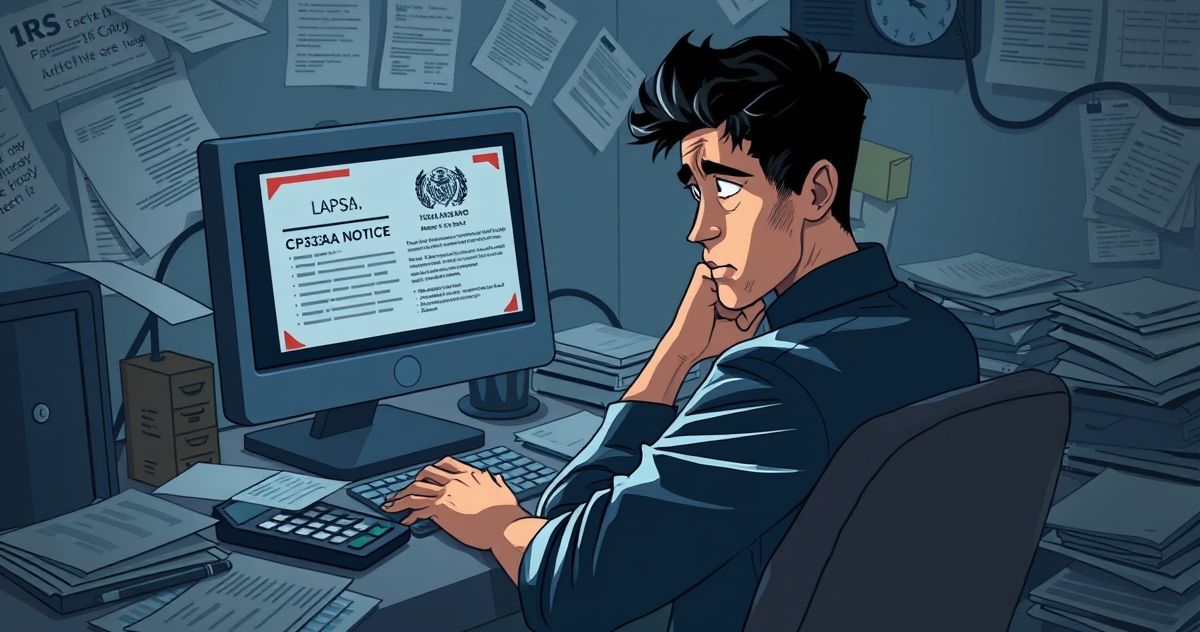Understanding the CP523AA Notice
The CP523AA Notice is an important communication issued by the IRS, alerting taxpayers about specific unpaid tax obligations and the potential for their account to default due to non-compliance or non-payment. Such a notice is crucial for those enrolled in an installment agreement with the IRS that is at risk of termination due to missed payments or unresolved tax liabilities. Timely attention to this notice can prevent more severe financial repercussions and help in maintaining compliance with IRS requirements.
What is the CP523AA Notice?
The CP523AA Notice is primarily sent to taxpayers who have entered into an installment agreement with the IRS for unpaid taxes. The notice warns of potential default if the agreed payments are not made or if there are additional outstanding taxes. Essentially, this notice serves as a final reminder before the IRS takes more severe collection actions, such as levies or liens, to recover the dues.
Primary Purpose of the CP523AA Notice
The main purpose of the CP523AA Notice is to inform taxpayers of the looming risks related to their installment agreement and to prompt corrective action to avoid default. It provides the opportunity to catch up on missed payments and address any additional tax obligations before the IRS enforces more drastic measures.
Key Features or Components of the CP523AA Notice
The CP523AA Notice contains several crucial elements, including:
- Details of the Missed Payments: Information on the payments that have been missed under the existing installment agreement, including dates and amounts.
- Outstanding Taxes: An outline of any other tax amounts due, in addition to those covered by the installment agreement.
- Consequences of Non-Compliance: A warning about the possible termination of the installment agreement if immediate corrective action is not taken, leading to the resumption of full collection activities by the IRS.
- Action Steps: Clear instructions on the steps required to reinstate compliance, which may include making overdue payments or contacting the IRS to rectify the situation.
Relevant Filing or Compliance Requirements
To comply with the requirements set out in the CP523AA Notice, taxpayers must:
- Make Overdue Payments: Settle any missed installments promptly to avoid default. This might involve making larger payments upfront to catch up on arrears.
- Address Additional Tax Liabilities: Ensure all outstanding taxes not included in the installment agreement are addressed and paid to bring the total tax account up-to-date.
- Contact the IRS: Reach out to the IRS if there are exceptional circumstances affecting the ability to pay. Communication can sometimes lead to revised payment plans or temporary relief measures.
- Review Financial Situation: Taxpayers should evaluate their financial situation to ensure ongoing compliance with the agreement’s terms, possibly seeking professional financial advice if necessary.
Penalties or Consequences for Non-Compliance
Failing to respond to a CP523AA Notice can incur several penalties or consequences, including:
- Default of Installment Agreement: The IRS may terminate the installment agreement if payments are not resumed, leading to immediate demand for the full tax debt.
- Increased Penalties and Interest: Additional penalties and interest can accrue on overdue amounts, compounding the taxpayer’s financial burden over time.
- Collection Activities: The IRS may initiate enforced collection activities such as wage garnishments, bank levies, or liens on property to recover the tax debt.
Importance of the CP523AA Notice
The CP523AA Notice plays a critical role in tax resolution and general financial compliance by providing taxpayers with a chance to rectify unpaid obligations before severe enforcement actions are undertaken. It underscores the importance of maintaining clear communication with the IRS and regularly reviewing one’s financial situation to ensure compliance with tax obligations.
For those trying to manage their financial liabilities, addressing a CP523AA Notice promptly is vital. It not only offers the opportunity to restore financial health by resolving overdue tax obligations but also helps maintain a positive relationship with the IRS, potentially avoiding future audits or increased scrutiny. Seeking professional tax advice can be particularly beneficial in navigating complex situations arising from such notices.

